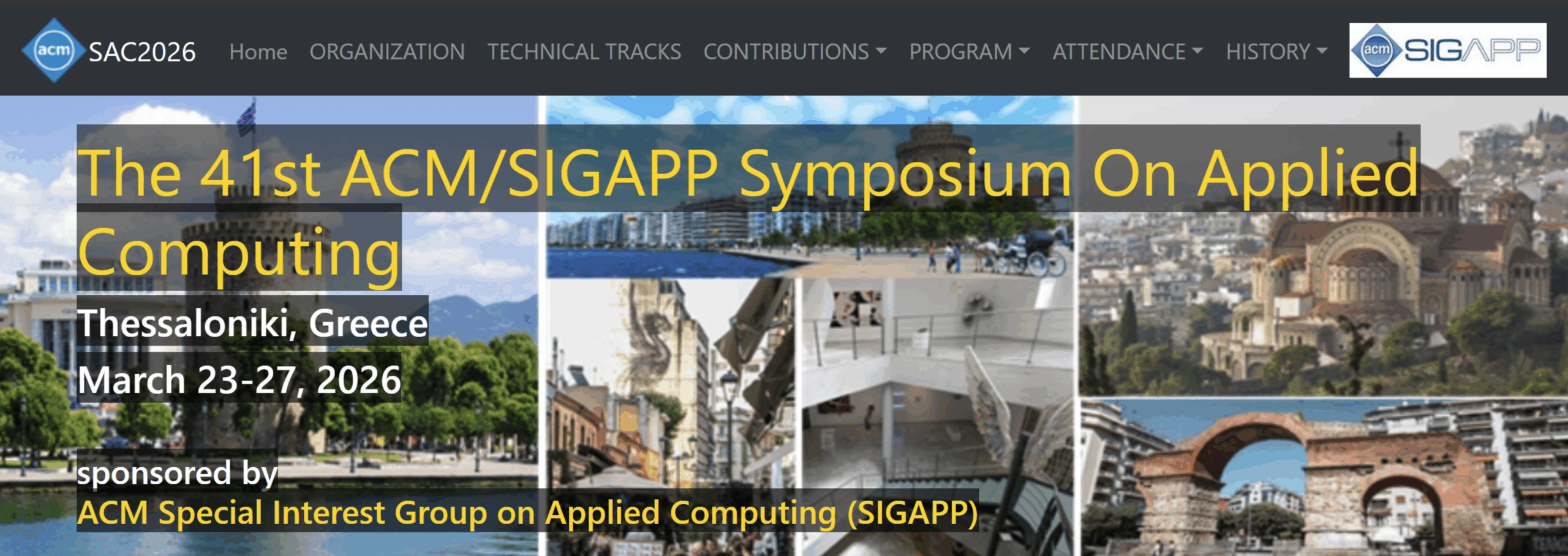
Artificial Intelligence for Education Track of the 41st ACM/SIGAPP Symposium on Applied Computing

- Dates: March 23–27, 2026
- Location: Thessaloniki, Greece
- Conference: ACM SAC 2026 – Artificial Intelligence for Education
- Conference Website: https://www.sigapp.org/sac/sac2026/
- Track Website: https://sites.google.com/view/aied-26/home
- Track Call-for-Paper Page: https://sites.google.com/view/aied-26/cfp
- Track Description:
Artificial intelligence (AI) has demonstrated significant potential in addressing various challenges within the education sector. For example, it can customize learning materials, sequence activities, provide individualized feedback, predict learning outcomes, and identify students at risk—enabling more responsive and effective teaching and learning. Despite these benefits, the use of AI in education has faced criticism for overlooking essential learning processes such as motivation, emotion, and (meta)cognition. Many systems are developed without meaningful involvement from domain experts and stakeholders. There is also a widespread reliance on unreliable explainable AI methods to interpret black-box models, while ethical concerns—such as data inconsistencies and algorithmic bias—are often ignored. Moreover, current AI systems tend to overemphasize automated, individualized instruction, frequently neglecting the cultivation of metacognitive and self-regulated learning skills. Nonetheless, even amid these shortcomings, AI technologies—including machine learning, natural language processing, image processing, and expert systems—are increasingly being incorporated into public education systems. Given the growing importance of AI in society and supporting education and the existing challenges in their applications, this technical track focuses on AI for education.
- Submissions
The AI for education track accepts regular (full) papers and posters. Selected papers, not accepted as full papers, may be accepted as poster papers. These will be presented at a poster session during the Symposium and will be published as three-page extended abstracts in the Proceedings. Additionally, graduate students are invited to submit research abstracts to the Student Research Competition. Accepted papers in all categories will be published in the ACM SAC 2025 proceedings and published in the ACM digital library, indexed by Thomson ISI Web of Knowledge and Scopus.
